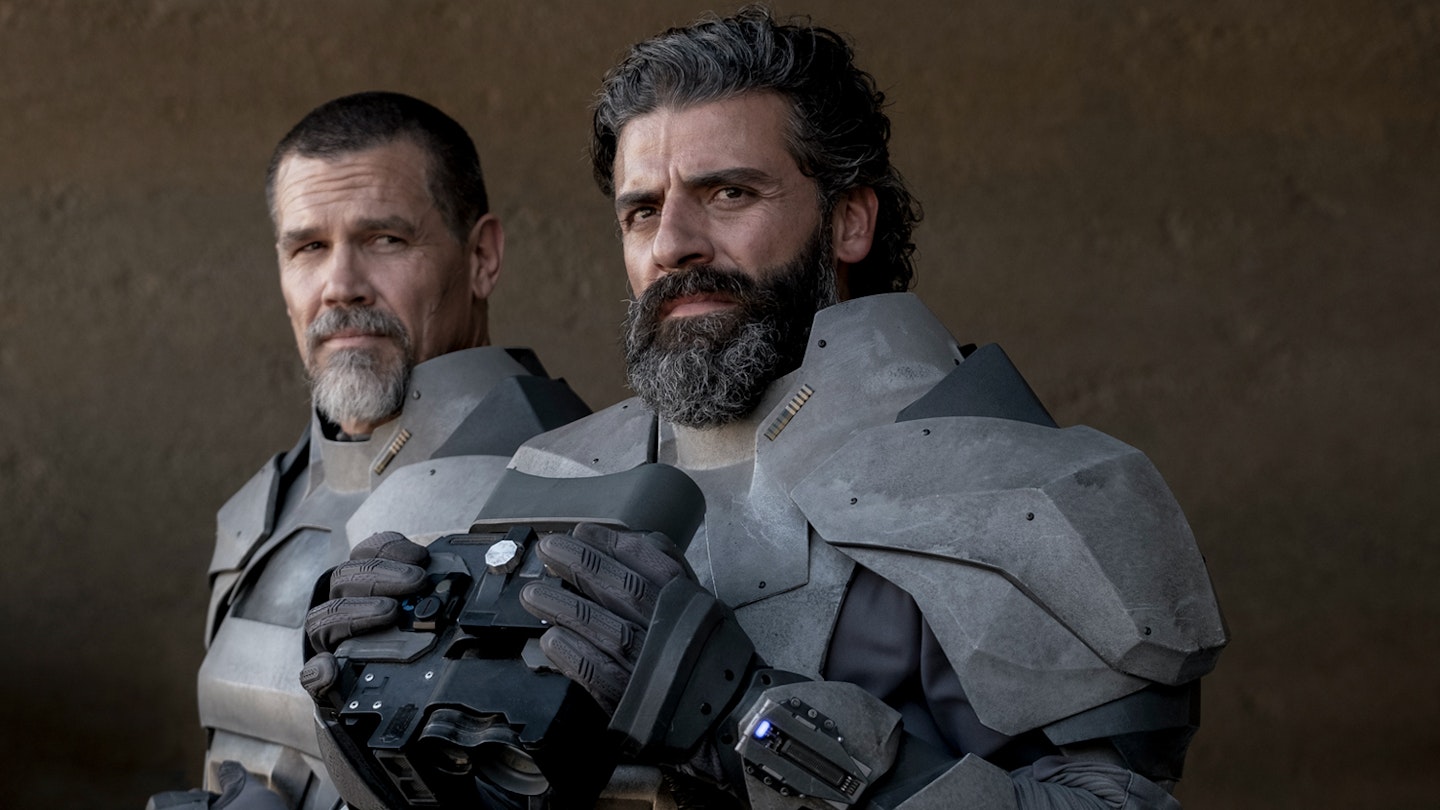When 2020 ended, we all hoped for better things in 2021. And if it was still another mightily difficult 12 months in many ways, there were things to celebrate in there – more must-see movies on screens big and small, times where audiences could congregate in cinemas again, and a slew of delayed releases finally making their way into the world. It was nothing if not eventful – and now, you can take a trip through the ups and downs of the year in movies with Empire’s round-up of the year’s biggest talking points. Enjoy, and here’s hoping for more lightness to come in 2022.
Marvel goes small-screen
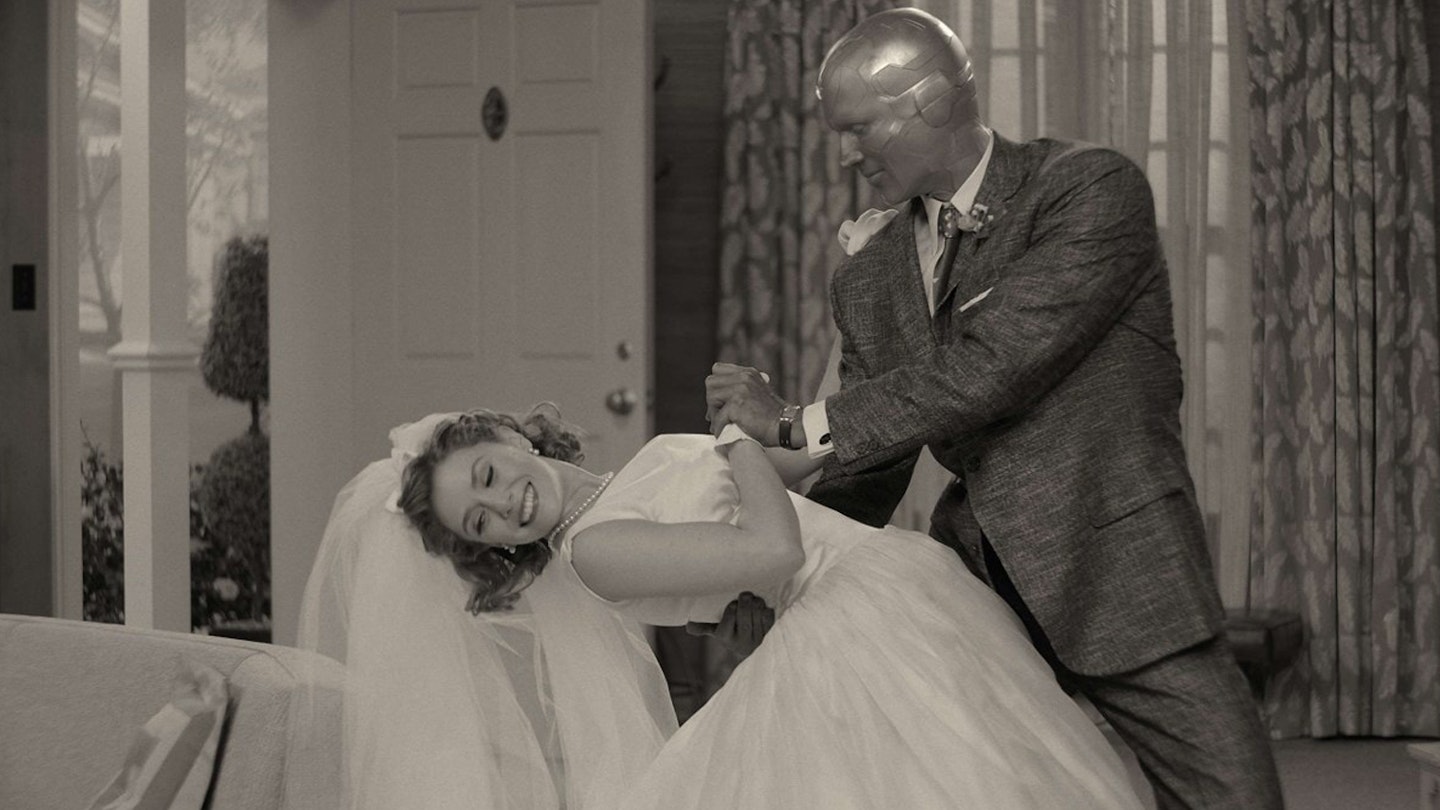
After a decade of dominating the big screen, Marvel took a(n enforced) year out in 2020. But in 2021, you couldn’t turn on your TV without seeing Kevin Feige’s named emblazoned across it. Just as Star Wars took the small screen by storm with The Mandalorian, the MCU made an equally assured jump to Disney+ with no fewer than five streaming shows across the last 12 months. Kicking off the year was WandaVision, showing just how idiosyncratic a Marvel series could be with its period-accurate sitcom homages and meditations on grief. If The Falcon And The Winter Soldier was less consistent (but still had its blockbuster moments), Loki brought all the flair of WandaVision to a much bigger sci-fi canvas and blew the multiverse wide open, laying the groundwork for What If…?, the first canon MCU project told in animation. And as the year draws to a close, the final episode of Hawkeye is about to drop – a bouncy, surprisingly emotional adventure for Jeremy Renner’s Clint Barton and Hailee Steinfeld’s incoming Kate Bishop. Not only has Disney+ offered breathing room for characters who long deserved their own stories – it brought Marvel even more chances to do what it does best: taking major risks, and knocking it out of the park.
Read Empire's reviews of WandaVision__, The Falcon And The Winter Soldier__, Loki__, What If...? and Hawkeye__.
Chloé Zhao sweeps the Oscars
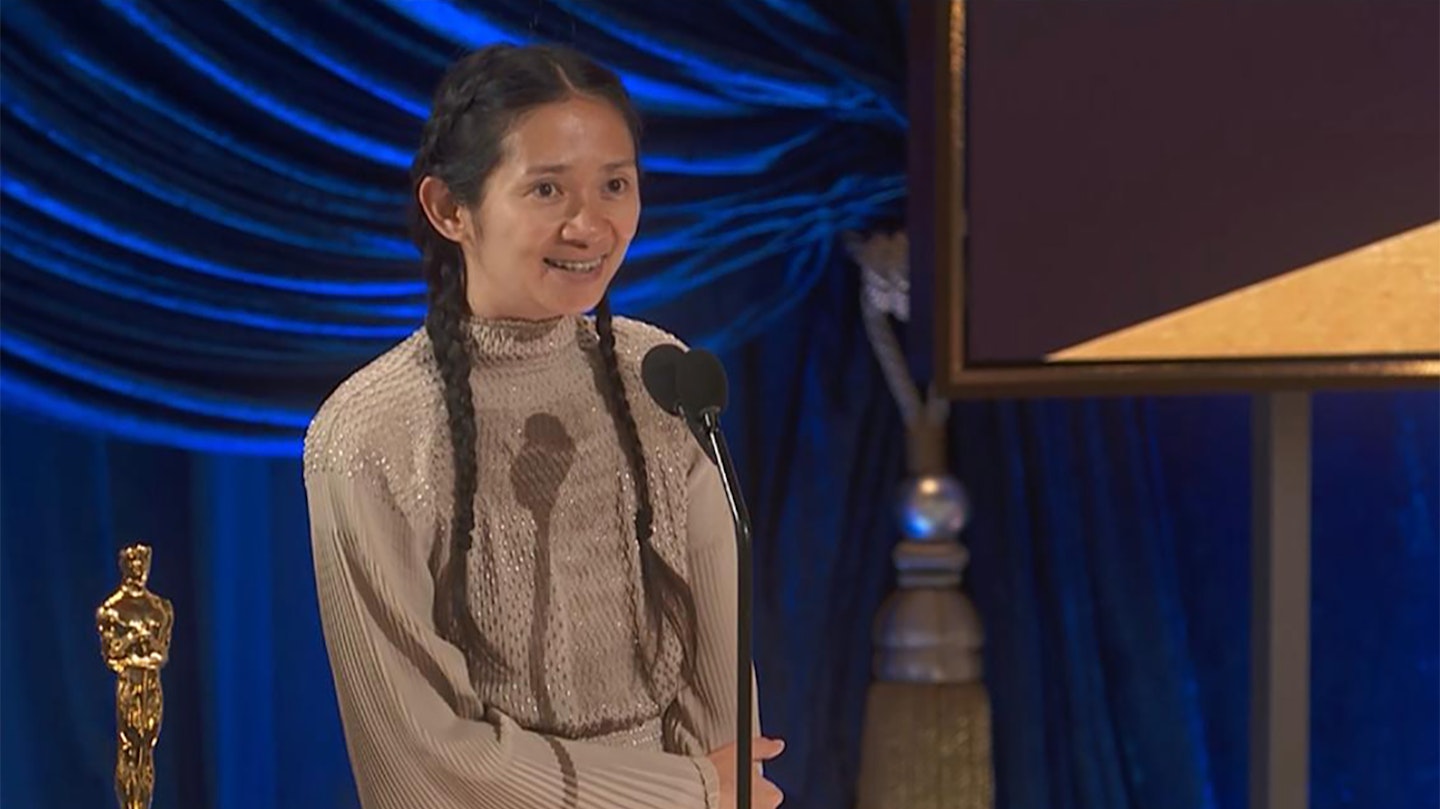
What a year for Chloé Zhao. While she rounded out 2021 by releasing a massive Marvel superhero spectacular in Eternals, she started it by making Oscars history – becoming the first Asian woman to win Best Director for her brilliant Nomadland. The film bagged Best Picture too – only the second film by a female director to do so – with another win for Frances McDormand in the leading role as Fern, a woman who takes on a nomadic lifestyle in contemporary America after losing everything in the financial crash. In the midst of everything happening in the world right now, Zhao’s speech was a beautiful tonic, centred around one key idea – ‘People at birth are inherently good’ – taken from classic Chinese literature. “I have always found goodness in the people I met, everywhere I went in the world,” she said. “So, this is for anyone who has the faith and the courage to hold on to the goodness in themselves, and to hold on to the goodness in each other, no matter how difficult it is to do that.” Films like Nomadland make that just a little bit easier.
The Snyder Cut finally surfaces

For years, debate of its existence raged – and while it took an estimated $70 million to make it releasable, 2021 was the year that the so-called ‘Snyder Cut’ of Justice League finally arrived. On 18 March, Zack Snyder’s Justice League – to give it its official name – came to HBO Max (and Sky Cinema in the UK), running to a behemothic as-promised four-hour runtime, reinstating significant excised footage from the theatrical release, bringing in new big bad Darkseid, and reframing familiar scenes with all-new elements. The result is a film that’s purposefully excessive, presented in IMAX ratio (despite beaming straight into people’s homes), told across six expansive chapters, and capped off with a Snyderverse-baiting epilogue teasing future adventures we’re unlikely to ever see. The consensus was that the ‘Snyder Cut’ is superior to the version that hit cinemas – but more fascinating is the fact that it came to be at all, due to a swirl of circumstances: an (often belligerent) fan campaigning, and studios coughing up major cash for IP content to draw new viewers to their go-for-broke streaming services.
Cinemas re-open. Again.

In a lot of ways, much of 2021 was like a half-arsed sequel to 2020 – worse than its predecessor, all of the novelty gone – and the winter lockdown was as dull and torturous as any number of Transformers follow-ups (not you, precious Bumblebee). From January onwards, we were back inside for months on end, the year’s biggest cinematic releases continuing to be shunted down the calendar. But then along came 17 May – the glorious day when cinemas were finally allowed to open their doors and welcome in punters once more. Hitting the screen was a mix of blockbusters that had forged ahead with streaming releases weeks previously (hello Godzilla Vs Kong), awards favourites like Nomadland and Sound Of Metal, and new releases like Spiral: From The Book Of Saw – followed by a flood of films that had all waited patiently for months, now jostling for screen space. If things didn’t go immediately back to normal, it was more than enough having the joys of the big screen back in our lives.
The UK theatrical window shortens
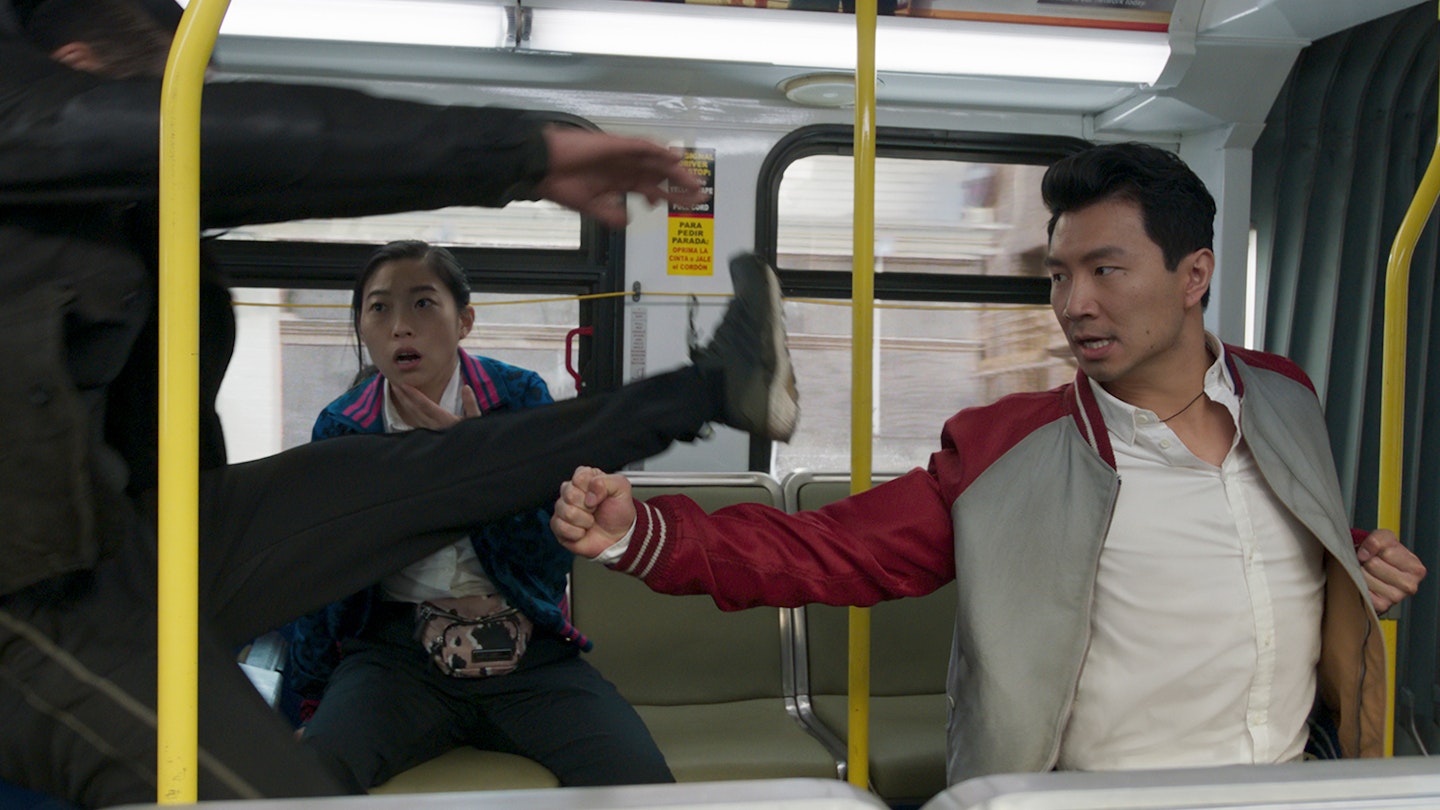
If there was one immediate ramification of the pandemic sure to be felt by movie-going audiences as cinemas reopened, it was the shortening of the theatrical window. No, that doesn’t mean screens got smaller. In the Old World (as we’ll soon be calling it), major studio films had a 16-week cinematic exclusivity window that meant a reasonable wait between movies hitting the big screen and becoming available on streaming services and physical release. But not anymore – that time-frame has shrunk considerably, in some cases down to around 30 days, after which some major cinematic releases have been available as higher-priced ‘Home Premiere’ rentals on your usual paid streaming platforms. How long that continues – and how it affects box office grosses – remains to be seen, but this year’s major Marvel movies have quite swiftly hit Disney+ (Shang-Chi arrived there just 70 days after its cinema debut) and No Time To Die became available for home viewing far quicker than it normally would have, all while still showing in cinemas simultaneously. The times, they are a-changin’…
Musicals stall at the box office
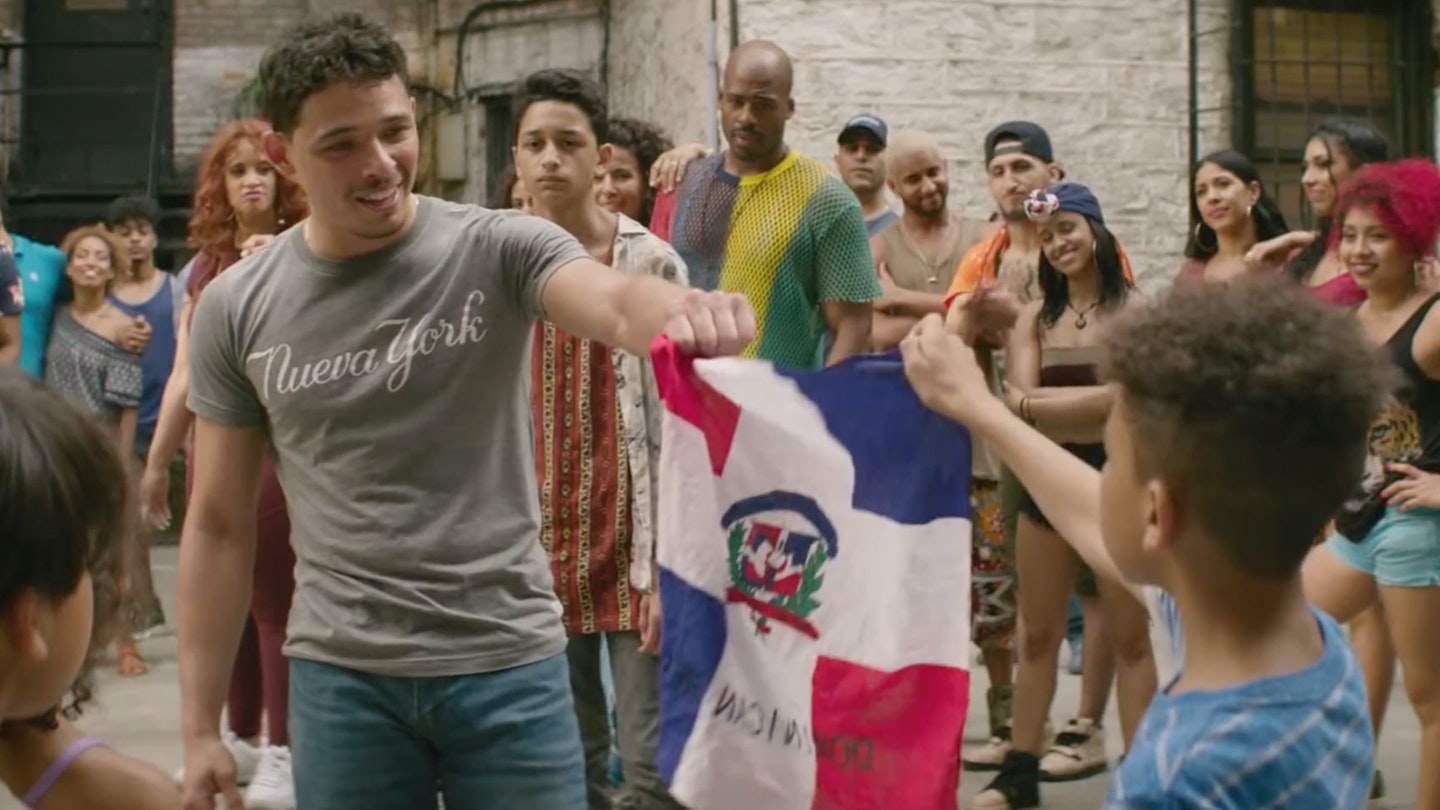
You would have thought that, after all this dour time indoors, audiences would be desperate to get into cinemas for some all-singing, all-dancing escapism. But apparently not. If it’s been a banner year for movie musicals, some of the biggest among them have struggled to pack in the crowds. In the summer, Jon M. Chu’s joyous adaptation of Lin-Manuel Miranda’s musical In The Heights wasn’t seen by nearly as many people as it deserved – and it was no anomaly, with Steven Spielberg’s new version of West Side Story similarly struggling to connect. On an artistic level, musicals were in full swing this year – beyond those previously mentioned, the likes of Tick, Tick… BOOM!, Disney’s animated Encanto, and other films not featuring the involvement of Linny-Manny (see, Sparks and Leos Carax’s wild Annette; don’t see, Dear Evan Hansen), the movies were in full song in 2021. For now, audiences don’t seem that interested in listening.
Read the Empire reviews for In The Heights and West Side Story__.
Cannes makes a comeback – and other festivals follow

It seemed unthinkable in the first few months of 2021 – but as summer rolled around, infection rates dropped, vaccines began rolling out, and the full film festival experience came back. Most notably, Cannes was one of the first to go all-out, with a stellar line-up including Julia Ducournau’s Palme d’Or-winning Titane, Paul Verhoeven lesbian nun thriller Benedetta, Leos Carax’s Annette, Wes Anderson’s The French Dispatch, and more – with in-person screenings, interviews, and all the usual film festival fare. And then, other festivals followed – including the UK’s own BFI London Film Festival, (carefully) celebrating the shared experience of cinema, with first looks at some of the most exciting movies we’d all been waiting patiently for. More of that, please.
The Fear Street Trilogy innovates with weekly movie drops

One of the biggest changes in 2021 was the way in which movies were released to audiences, and how they chose to watch them – and Netflix's Fear Street trilogy was the summer hit nobody saw coming thanks to its innovative (read: really, really cool) rollout. In a feat that still isn’t getting the attention it deserves, Leigh Janiak directed all three films in an adaptation of R.L Stine’s more grown-up slasher fare, each with their own story and setting (Part One: 1994, Part Two: 1978, Part Three: 1666) but also telling an overarching narrative about the twin towns of Sunnyvale and Shadyside. And in a cunning move, Netflix released them each a week apart – building buzz as the story built film-on-film, word of mouth spreading about these funny, knowing, seriously gory teen horror flicks, leading right up to that raucous finale. In recent years, streaming services have been experimenting with storytelling formats and new ways of releasing films and TV – and Fear Street was a bold, fun, exciting step.
Read the Empire review of Fear Street: Part One__, Part Two__, and Part Three__.
No Time To Die revives the UK box office…
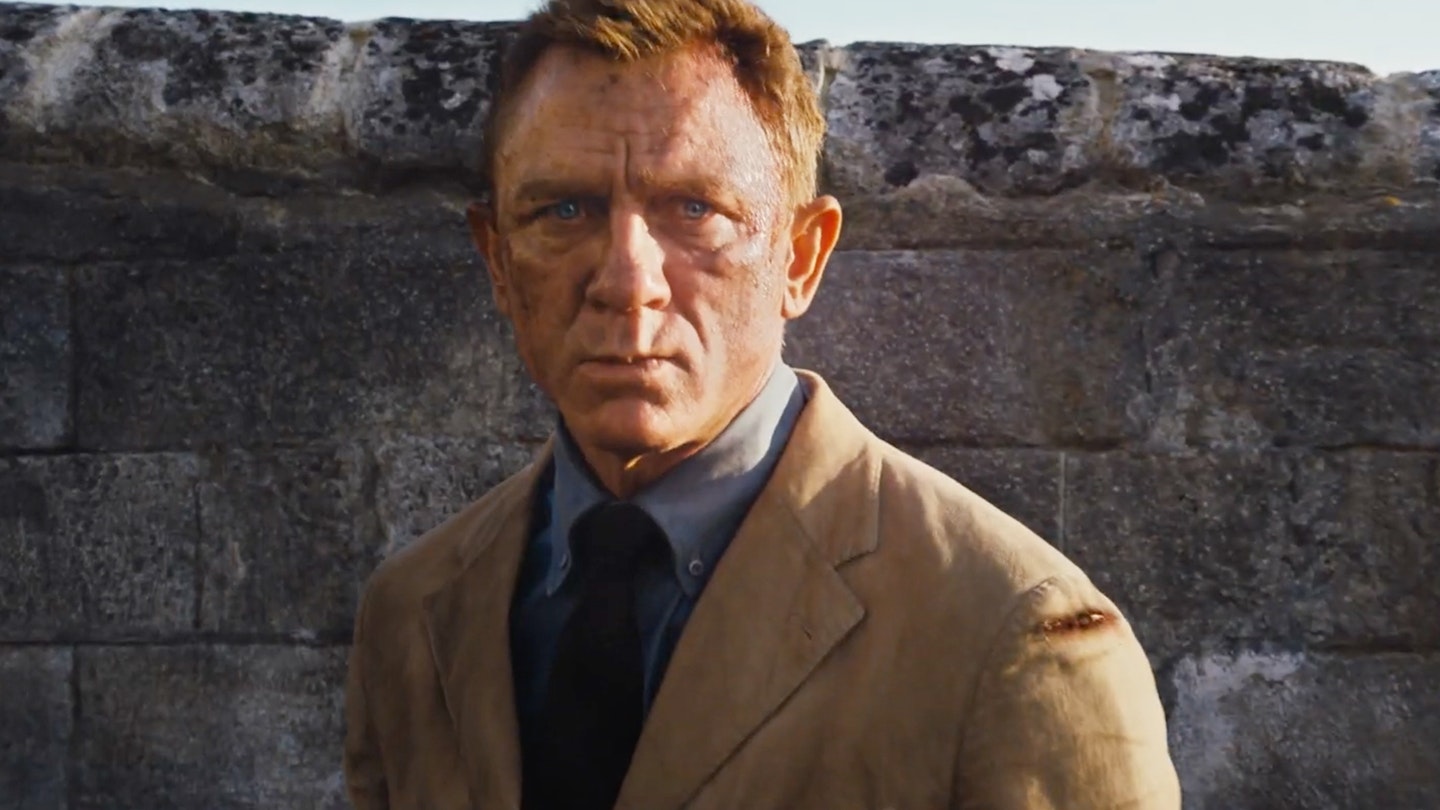
In the first few months that cinemas re-opened again, there were some really big movies for audiences to be excited about – from Black Widow to A Quiet Place Part II. But there was one film UK audiences in particular were awaiting with more fervour than any other: No Time To Die. On these shores, James Bond is an outright cultural institution, and the hype for Daniel Craig’s 007 swansong was in full swing – translating into massive ticket sales. In its opening weekend, it pulled in £15.2 million at the UK box office. By the end of November, No Time To Die’s overall UK figure had risen to £98 million, overtaking Spectre, and only lagging behind Skyfall in UK ticket sales – becoming the third biggest release of all time. Partly, it had been six years since the last 007 movie. Plus, it was pretty damn good. And, you had to see it quickly if you didn’t want to know about that ending.
Read the Empire review of No Time To Die__.
…and [REDACTS] James Bond

SPOILER WARNING for No Time To Die
Miraculously, the final reel of No Time To Die remained largely under wraps. Where other cameos and plot lines from the film leaked to the press, the biggest one didn’t. And when audiences finally saw it, they largely avoided splurging its biggest secret. Because for the first time in the character’s history, 25 films in, No Time To Die… (last chance now, turn back lest ye be spoiled…) killed James Bond. In a pretty radical move for such a conservative franchise, Craig’s 007 was blown to smithereens (thankfully not in close-up) to save not only the world and his country, but his lover Madeleine and newly-discovered daughter Mathilde too – going out in a hail of missile fire. It was a decidedly final end for Craig’s incarnation of the character – thought not for the character itself. If there was any doubt, that iconic line in the credits confirmed that, as ever, James Bond will return. Now the big question remains: who will he be next?
Hollywood calls for gun reform after a tragedy

The exact circumstances of what happened on the set of Western movie Rust are still being investigated – but ultimately, in a shocking, tragic incident, a live round was fired on set during rehearsal, killing cinematographer Halyna Hutchins and injuring director Joel Souza. If there were multiple possible factors that contributed to the horrifying situation, it generated one key debate: does Hollywood need to use functioning prop guns anymore? The answer from many parties seems to be ‘no’ – with a petition to implement ‘Halyna’s Law’, which would ban the use of real firearms in productions, being signed by more than 116,000 people, and shared by the likes of Dwayne Johnson, Olivia Wilde, Julianne Moore, Lena Dunham, Anna Paquin, Sarah Paulson and Ariana DeBose. While the specificities of the Rust saga will rumble on in 2022 and likely beyond, the tide may be turning for wider filmmaking practices.
Dune got rave reactions – and earned a Part Two
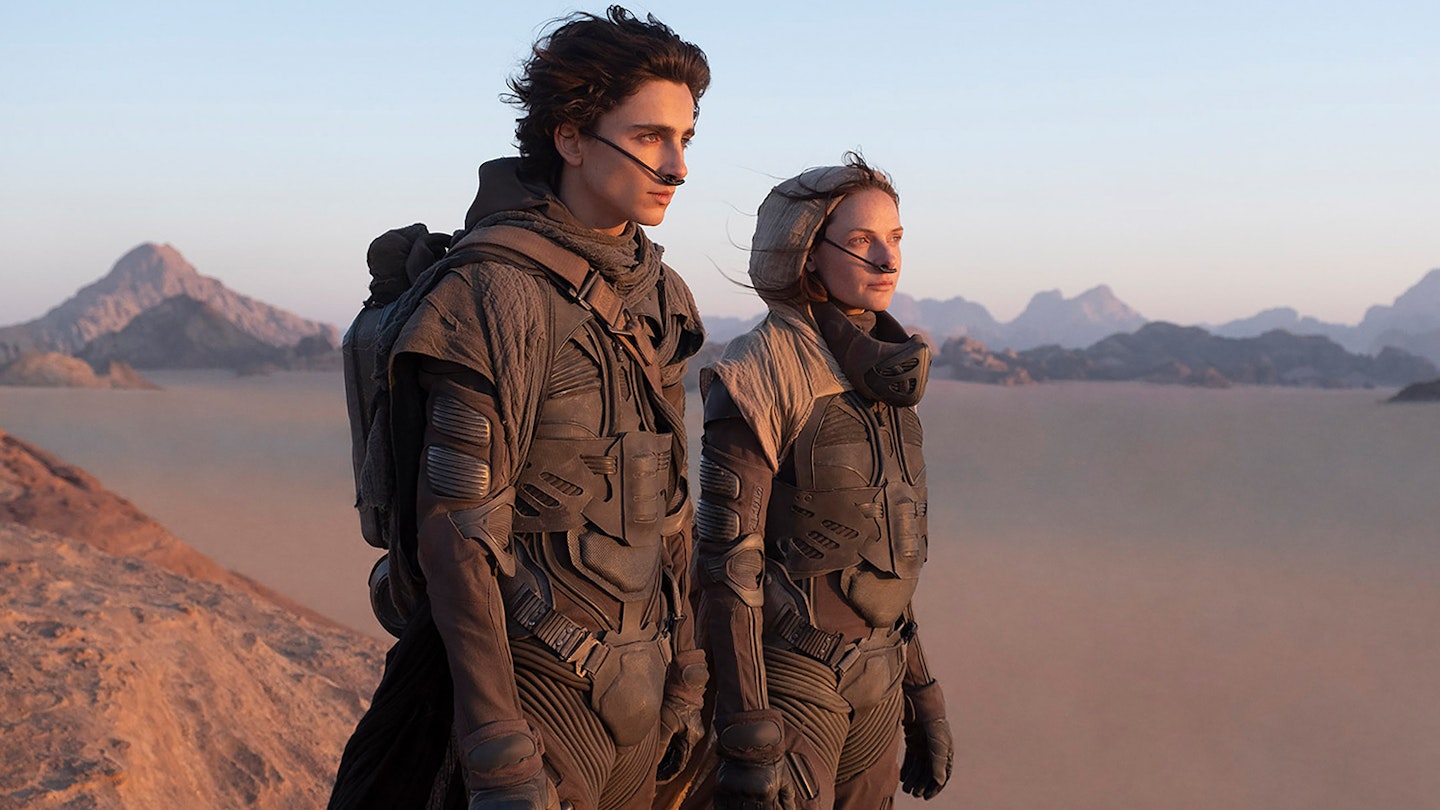
The UK at large might have been most excited about Bond this year – but for sci-fi fans, there was only one film they’d willingly put their right hand in a pain box to see on the big screen. Denis Villeneuve’s adaptation of Frank Herbert’s Dune (or, the first half of it at least) had, like its protagonist Paul Atreides (Timothée Chalamet), a high chance of being something very special – with an iconic sci-fi tome as its source material, a sprawling cast of stellar performers (Oscar Isaac! Rebecca Ferguson! Josh Brolin! Jason Momoa! Zendaya! Javier Bardem! Charlotte Rampling!), and the director of Arrival and Blade Runner 2049 steering the ship. And while previous adaptations had faltered, this one hit like a fresh inhalation of Spice – conjuring epic visions of a wild and vibrant galaxy, and getting viewers hooked on its complex but clearly-told narrative. Which makes it all the sweeter that the rave reviews, strong box office and considerable hype proved enough for Warner Bros to sign off on Part Two. This is only the beginning. See you back on Arrakis in 2023.
Spider-Man: No Way Home opening weekend hits pre-pandemic numbers

“Spider-Man, Spider-Man, does whatever a spider can / Makes the cash, all the cash / Oh my god, so much cash / Look out! There’s so much Spider-cash!” In a year where much of Marvel’s big-screen outings were focused on introducing new characters and strange new corners of its Cinematic Universe, December’s Spider-Man threequel No Way Home promised to be a massive, honest-to-god event movie not far off the scale of Infinity War and Endgame. And frankly, it delivered on that. We won’t say a word of what happens in the film (so many things!), but between the ecstatic reviews, the wild internet speculation, and what’s sure to be repeat business (even as the Omicron variant spreads and Covid threatens cinemas once more), this one’s racking up dollar bills at a rate of knots. In its opening weekend alone, it earned a whopping $587 million worldwide – quite literally in the Infinity War / Endgame ballpark, and the biggest debut by far since the pandemic began. No wonder Spidey can afford all that nanotech.
People we lost in 2021
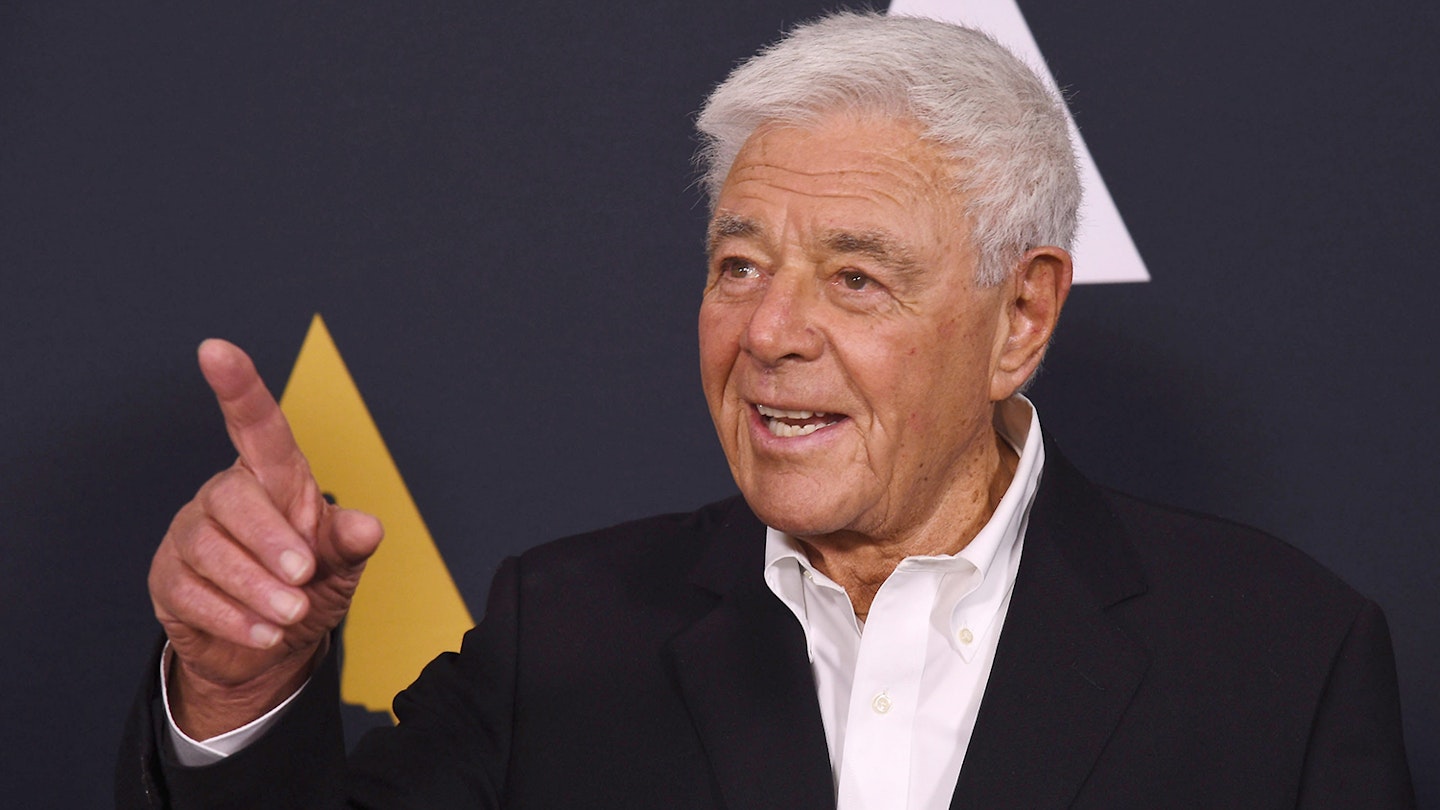
This year, we bid a sad farewell to a host of beloved actors and filmmakers – among them, Richard Donner, Michael K Williams, Christopher Plummer, Ed Asner, Roger Michell, Dean Stockwell, Yaphet Kotto, Helen McCrory, Norm MacDonald, Paul Ritter, Charles Grodin, Sonny Chiba, Hal Holbrook, Lina Wertmüller, and Una Stubbs.
